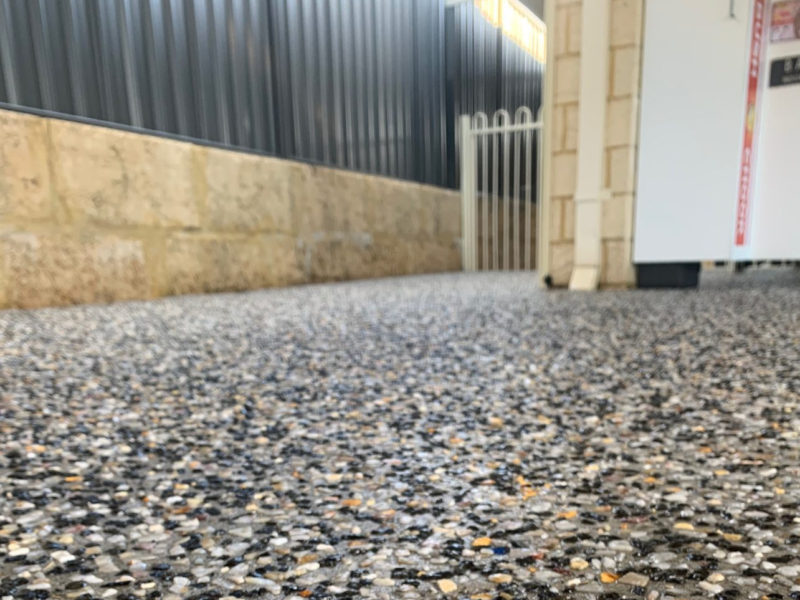
Concrete Pavers Should I Seal Them
After investing in concrete paver patios or driveways, you might wonder: “should I seal my concrete pavers?”
Concrete pavers can be sealed for a number of reasons, but it’s not always necessary. If you are considering sealing your concrete pavers, it’s important to understand what you expect and how long you want them to last.
Paver sealant is a valuable tool for maintaining paver driveways, patios, walkways, and pool decks, but it isn’t always necessary. In addition to growing weeds in cracks, pavers that are not sealed typically lose their color over time, and can even shift due to a lack of joint sand.
The main reason we recommend sealing your slabs is to prevent staining. Any liquid left on the surface of natural stone will absorb into the stone. It may not seem like much of a problem when it comes to rainwater, but remember that this applies to everything. You don’t want your patio soiled by muddy footprints or barbecue grease! Also, read Patio sealing in Perth
Marks can also be left by organic matter. Leaf drops, bird droppings, and moss can all leave stains on your stone, and once they are drawn into the surface, they can be difficult to remove.
In addition, sealing natural stone will keep excess moisture from building up inside, preventing frost damage and the growth of moss, mould, and algae.
Table of Contents
What are the benefits of sealing my pavers?
It is not mandatory to seal your pavers, but consumers often choose to do so for a number of reasons. In addition to maintaining the integrity of your outdoor environment, sealing your pavers also provides four technical benefits. The four benefits include shielding pavers from fading, enriching the colors, limiting stains, and securing the sand at interlocking joints.
Enhance the colors of your pavers while protecting them from fading
In order to protect your pavers from the weathering UV rays after you have invested in pavers, whether they are for a patio, poolside deck, etc., you should seal them. Radiation from these rays, which are known to negatively affect the skin, also harms your pavers.
Pavers should always be sealed to prevent fading. Concrete even fades over time because of the UV rays, despite being one of the toughest pavers. Choosing to seal your pavers will ensure your color remains constant and un-fading.
In addition to protecting the color of your pavers, sealing them can also increase the vibrancy of the colors.
Limits staining
Sealers limit stains, which is largely agreed upon as a benefit. When you seal pavers, they become less porous, which decreases the ability for things like dirt to soak up. By doing this, your pavers will remain clean, fresh, and stain-free.
Sanding joint interlocks
A major benefit of sealers is the way they secure interlocking joint sand. By applying joint stabilizing sealers to your pavers, the joint sand between the pavers hardens, which helps keep the pavers in place. Weeds cannot grow between paver joints when the joint sealers are applied.
Is Pavers Sealed When They Are Installed?
This waiting period can vary from manufacturer to manufacturer. Most of the time, they suggest waiting at least one year to allow the naturally-occurring efflorescence (dusty buildup in the stone) to disappear. It is not necessary to wait at all if your sealer is breathable, and you can seal your paver immediately after installation.





No Comment